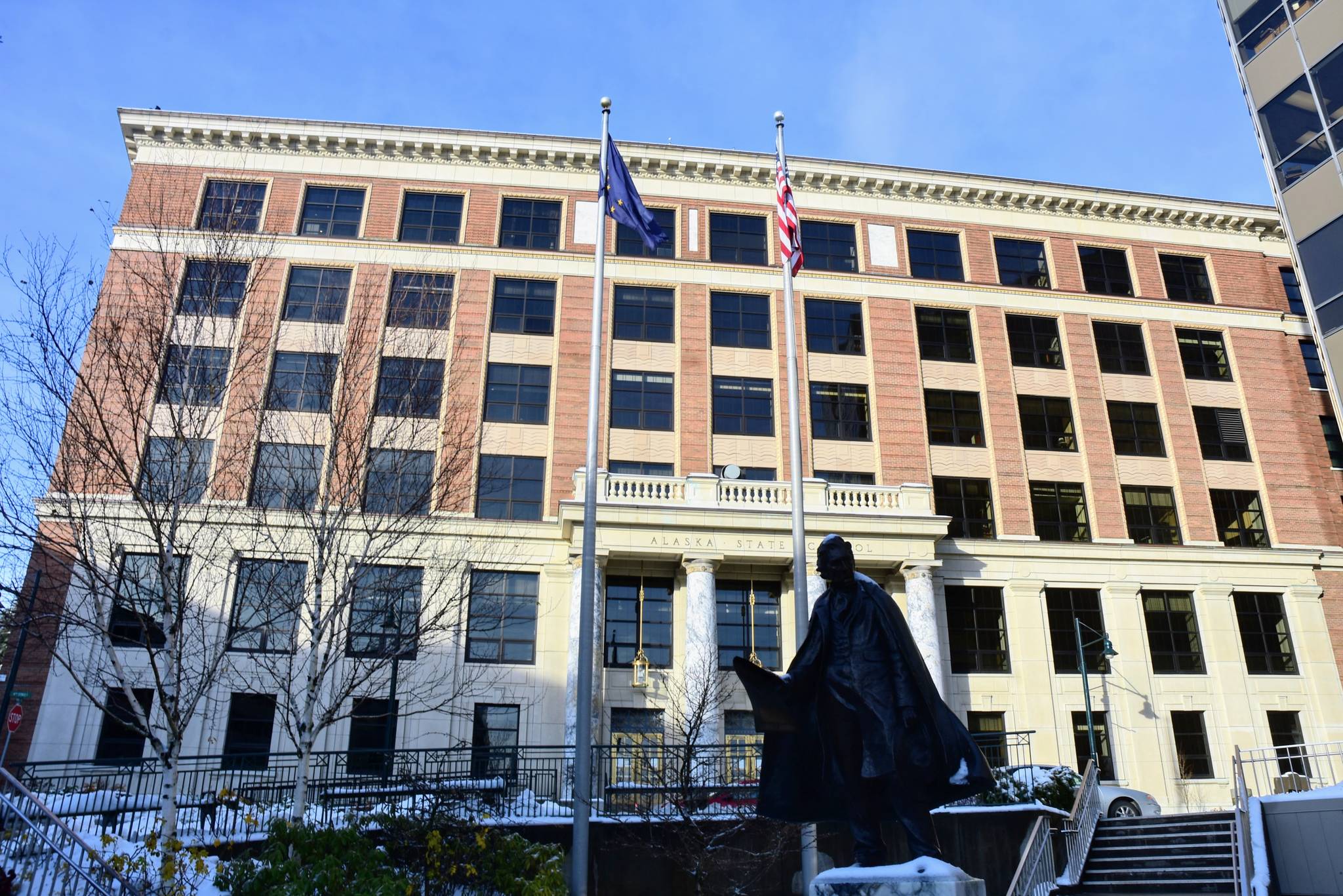Local leaders said without further refinement, they’re unsure whether they support Gov. Mike Dunleavy’s proposed budget, which the governor said is meant to jump start an Alaska economy reeling from the effects of the ongoing pandemic.
Alongside his budget Dunleavy also proposed three constitutional amendments meant to put the state on a long-term fiscal path. Included in those amendments are a cap on state spending and a reconstituted formula for the Permanent Fund Dividend.
Amendments to the state constitution require a vote of the people, and if the Legislature works quickly enough, the governor hopes to have the amendments by the next general election. Both amendments address what have been intractable issues for years, the governor said when he announced his budget, and these amendments would allow the people of Alaska to determine that plan.
However, in a letter to the governor, the Alaska Municipal League expressed reservations about some of the proposals, saying more work needed to happen before those things could be used effectively.
“I think there’s a lot of agreement that something has to be done, what that looks like, I don’t think there’s agreement,” said Nils Andreassen, AML executive director.
Much of the legislative session in recent years has been taken up by debate over the PFD, Andreassen said, but any debate over the formula needs to be taken in context with the other needs of the state. The state has underfunded its current obligations to local municipalities for years, he said, citing reimbursement for school bonds as a particularly critical area for cities.
Andreassen said AML broadly supported the governor’s proposal for $300-350 million in infrastructure bonds but noted the state is currently struggling to repay bonds.
[Dunleavy proposes budget for ‘unprecedented’ times]
“It’s worth pointing out,” AML wrote in their letter, “the State committed to reimbursing municipal debt that improved ports and harbors, and school construction. For the last few years, the state has shirked its obligation and left local governments to pay that debt. If the State is to take on new debt, then it must recognize its responsibilities to prior debt commitments.”
Juneau City Manager Rorie Watt said the city needed a long-term fiscal plan, regardless of what it looked like.
“However the Legislature and the administration can work on that continues to be what we all want and what we all need,” he said. “It’s what we should advocate for.”
AML supports Dunleavy’s proposal to draw more than $6 billion from the Earnings Reserve Account of the Permanent Fund — above the percent of market value typically followed by the Legislature — but noted that was only because of the economic crisis caused by the pandemic.
“A one-time overdraw is not sustainable,” the letter said. “We only support this approach if the Legislature also begins the process of implementing a long-term solution.”
Municipalities see the state’s fiscal health as critical to their own, Andreassen said, and lawmakers need to look at their decisions comprehensively following rigorous research.
“We’re seeing continued downward pressure on local governments who are expected to pick up where the state isn’t going to,” he said. “It makes it more challenging for residents and the economy.”

